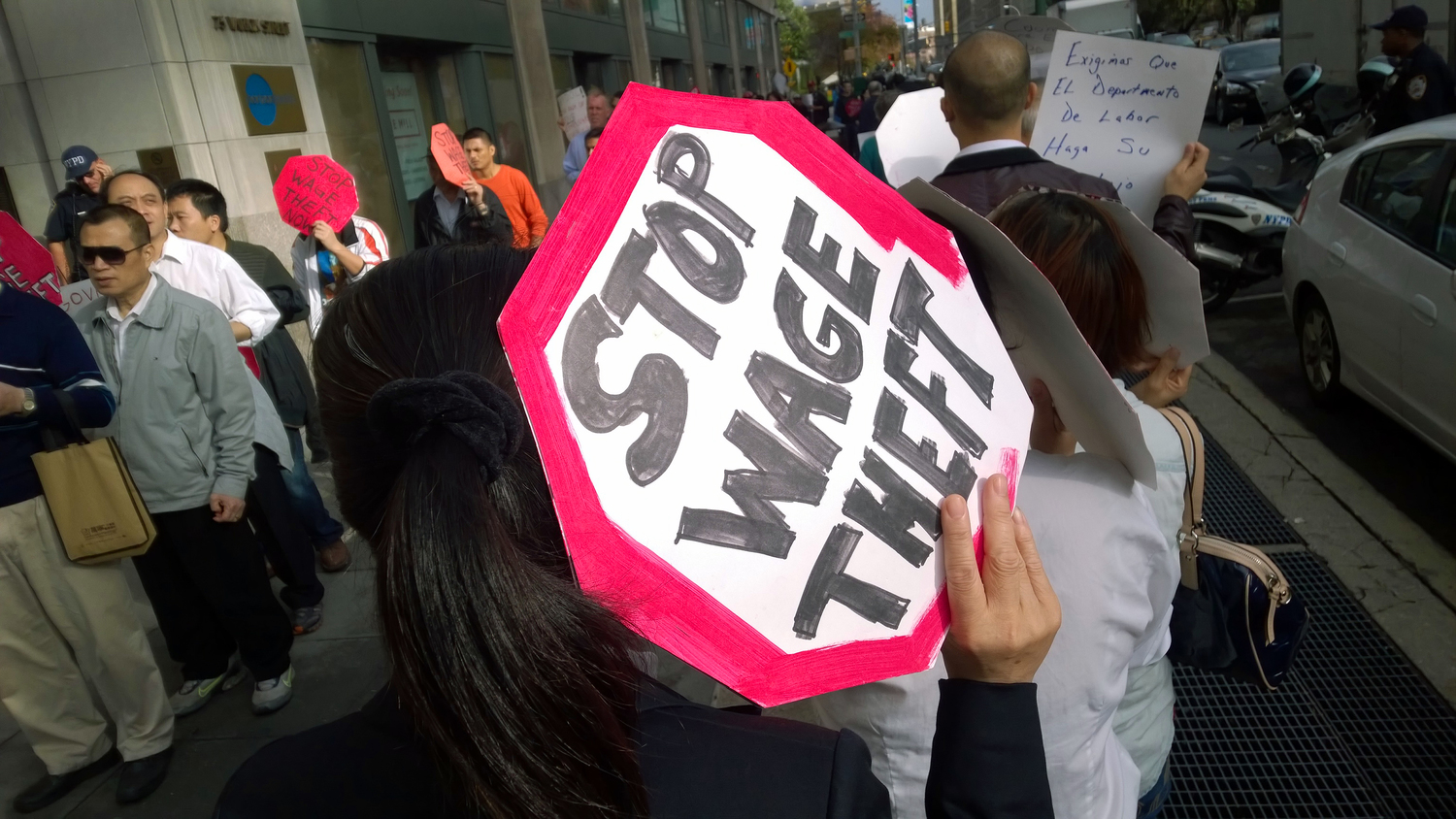

Share
Saying too many bosses steal workers’ wages, congressional Democrats introduced legislation to crack down on wage theft, through stiff fines, enabling worker class action suits, and, in the worst cases, threats of criminal prosecution.
The measure is designed to particularly help low-wage workers, the lawmakers said. But overall, citing Economic Policy Institute data, they said employers steal at least $15 billion yearly from workers.
“Today, across the country, many people are putting in long hours on the job and working hard for an honest day’s pay, only to have their employers cheat them out of their wages,” said Senate co-sponsor Ed Markey, D-Mass.
“While the vast majority of employers do the right thing and treat workers fairly, too many others force their workers to work off the clock, refuse to pay workers the minimum wage, deny workers overtime pay even after they work more than 40 hours a week, steal workers’ tips, or knowingly misclassify workers to avoid paying fair wages.
“This bill will strengthen fundamental protections to allow workers to get the money they have earned through hard work and it will crack down on the corporations that subject workers to these abuses. These steps will help ensure our country can work for all Americans, not just the wealthiest few, so our economy grows from the middle out, not the top down,” he added.
Other sponsors of the Wage Theft Prevention and Wage Recovery Act include lead House sponsor Rep. Rosa DeLauro, D-Conn., Rep. Bobby Scott, D-Va., and Democratic Sens. Sherrod Brown of Ohio, Al Franken of Minnesota, Dick Durbin of Illinois and Patty Murray of Washington.
Key provisions of the legislation would:
- Require employers to pay all wages to a wage theft victim. Current law lets such victims recover only the minimum wage, plus overtime pay.
- Require employers to provide initial disclosures of the terms of their employment and regular paystubs to all workers, and fine them if they don’t.
- Order the employer to give a worker his or her final paycheck within two weeks of the worker’s departure or the by the end of the relevant pay period, whichever is shorter.
- Fine the employer $2,000 for each violation of the federal minimum wage and overtime pay law, or for not giving workers their “full compensation” when they leave. Willful or repeat offenders would face $10,000 fines per violation. Right now, repeater face $1,100 fines and first-timers aren’t fined at all.
- Increase damages wage theft victims can claim, from twice the owed wages to triple the owed wages, plus interest. The worker victim would also have four years, not two, to file a wage theft claim. And if the employer retaliates against a worker-turned-whistleblower, the employer would face a fine of quadruple the owed wages, plus interest.
- Raise the fines on employers who keep sloppy records, or none at all, in their attempts to avoid convictions for wage theft.
- Make it easier for employees to take collective action to recover their stolen wages. Right now, workers must ‘opt-in’ to engage in a collective action under the minimum wage and overtime pay law. The new legislation would automatically include them unless they opt out.
- Order the Labor Department to send cases of comprehensive wage theft to the Justice Department for prosecution of the employers.

